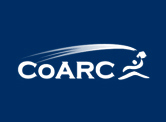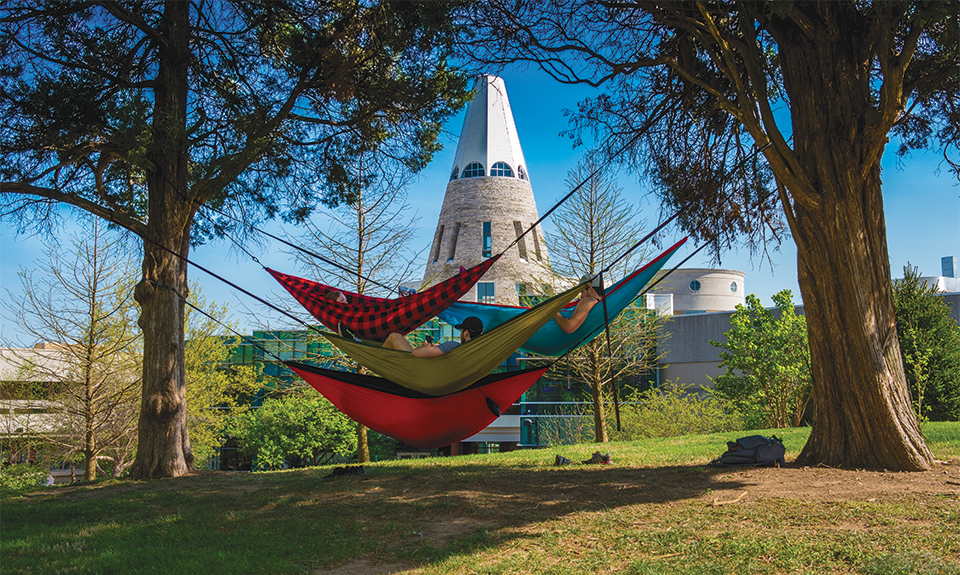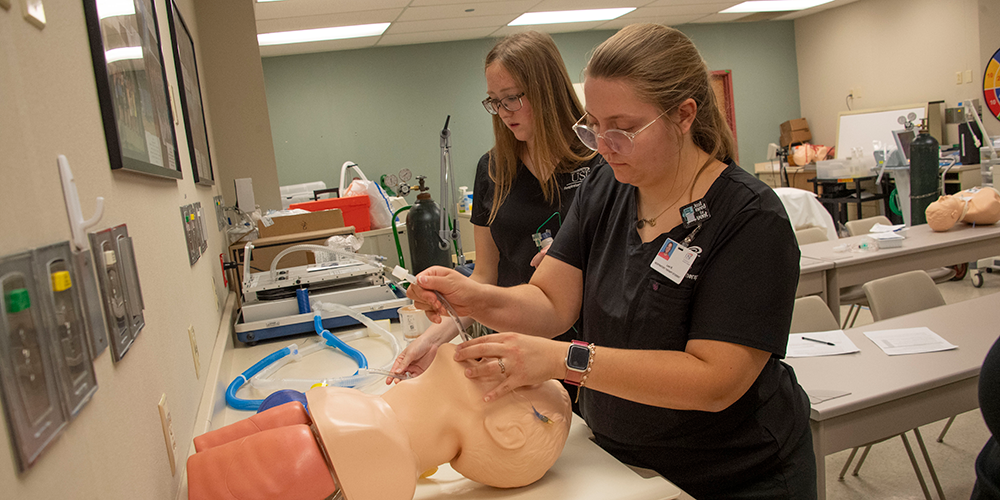The respiratory therapy program at USI offers you a unique opportunity to join a diverse and comprehensive healthcare team that provides direct, hands-on care to those with chronic pulmonary diseases such as asthma and COPD. The USI RT program includes seven clinical affiliations that you will rotate through during the clinical phase of the program, gaining invaluable training from experienced respiratory therapists at each affiliation. You’ll have the opportunity to learn from faculty with years of extensive training, knowledge and experience in all areas of respiratory therapy.
To apply to the University of Southern Indiana (USI) for undergraduate enrollment:
Once USI has processed your application, transcript(s) and scores (if needed), a decision will be made by Undergraduate Admissions and you will receive a notification.
Upon acceptance to USI, you'll receive detailed information about next steps, including orientation, registration and housing.
There is a secondary application process to be accepted into the Respiratory Therapy Program. Students may declare a major in pre-Respiratory Therapy upon entering the university or complete a change of major form at any point in time.
To be considered for admission to the entry level BSRT program, students must have completed the required credit hours identified for the first year’s courses (or their equivalent) in the respiratory therapy curriculum.
After completion of the first-year pre-requisite courses, pre-respiratory therapy students are eligible to apply to the respiratory therapy program.
Applicants are encouraged to submit their materials by the priority deadline to ensure full consideration for admission.
For more information and the online application, visit our program admission page.
Historically, USI graduates achieve pass rates higher than the national average and are offered employment upon graduation. As a registered respiratory therapist, you will be eligible to provide care in the following areas:
*income information provided by O*NET Online. Occupation opportunities vary by region and experience.
The University of Southern Indiana is committed to making college accessible to those wishing to further their education by providing numerous scholarships, grants, and financial aid options to assist students in managing tuition expenses.
 The program is accredited by the Commission on Accreditation for Respiratory Care (CoARC).
The program is accredited by the Commission on Accreditation for Respiratory Care (CoARC).
CoARC's Main Webpage: www.coarc.com
Program Number: 200060
Main Webpage: www.coarc.com
View the accreditation statement for USI's program
Visit our Student and Program Outcomes Page
Requirements for licensure and certification vary by profession and by state. USI has reviewed the educational requirements for each state and licensing agency to determine if the academic program here at USI meets the educational requirements to be eligible for licensure/certification in each state or not. Please note that some states may have additional requirements for licensure, such as residency requirements, additional non-academic certifications, etc. that USI cannot determine. We encourage you to check with your state's licensing agency for all requirements needed to obtain licensure.


